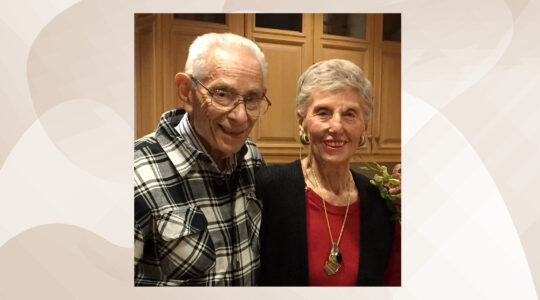Julius Jay Tanenbaum, a World War II veteran who rose from Depression-era Brooklyn to become a pioneer in Long Island and regional real estate development, died on July 1, 2025. He was six months away from celebrating his 100th birthday.
Born on January 2, 1926, to Jewish immigrants David and Rose Tanenbaum, Mr. Tanenbaum grew up on the streets of New York City at a time when discipline, grit, and resolve were the currencies of survival. He graduated from James Madison High School at just 16 and entered the University of Maryland as a student-athlete playing varsity football with the intent to become a doctor, but history had other plans.
In the wake of the Pearl Harbor attack, Jay enlisted in the U.S. Navy at the age of 17. As a Quartermaster Third Class in the Pacific Theatre, he helped navigate destroyers across the Pacific, assisting officers on the bridge and helping transport troops to the beaches in amphibious assault ships (LST 729) through and into some rough and perilous seas and some of WWII’s most furious battles. “My father was a good sailor,” his son John said. “Not just on the water, but in life.”
Returning from war, he completed his education and played for the Terrapins. To pay his way through college, Mr. Tanenbaum began building homes in Maryland — first for others and then for himself when he moved back to New York. He moved to Long Island and started his own residential development business, before eventually expanding into medical and office buildings, and later, shopping centers within the tristate area and beyond.
Jay’s business instincts were sharp, but his work ethic was sharper. He remained an active participant in his company into his late 90s, still evaluating real estate deals and acquisitions, even as many of his peers had long since retired. “He did not really stop working,” said John Tanenbaum, who had a business meeting planned with him the week after July 4.
Mr. Tanenbaum will be remembered for the man he was: principled, exacting, charming and fiercely loyal. He believed that a person’s character and name was their greatest asset should not be sullied, and that what you build in this world is measured more in relationships, than in square footage.
To his grandchildren, he was not just a patriarch, but a partner, discussing current events, teaching business, cheering them on at tennis matches, and always encouraging them to further their education. He was known for giving unsolicited advice and unsparing feedback, but also unconditional love. He loved sports and competing on the tennis court against all who would play with him. Up until his last day, he was active and sharp; still telling stories, having a drink, and playing bridge and gin.
Jay Tanenbaum’s worldview was deeply shaped by his Jewish heritage, his war service, and the decades of economic and social change he lived through. He remained tethered to Jewish traditions and passed down a quiet but steadfast belief in responsibility — to family, to community, to Jewish causes and to the next generations.
Mr. Tanenbaum’s life spanned 10 decades and some of the most defining moments in American history, but Jay’s love left a lasting imprint on all who knew him, and on the physical and moral landscapes he helped shape.
He leaves behind his children Ellen, Cindy, and John, eight grandchildren (Elizabeth, Jeff, Daniel, Sam, Josh, Ben, Hannah, and Rebecca), and a legacy as enduring as the buildings he developed.
This is a Paid Life Tribute from the Tanenbaum family. JTA’s editorial team had no role in its production.
JTA has documented Jewish history in real-time for over a century. Keep our journalism strong by joining us in supporting independent, award-winning reporting.

